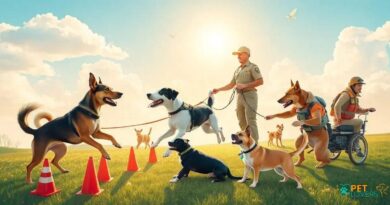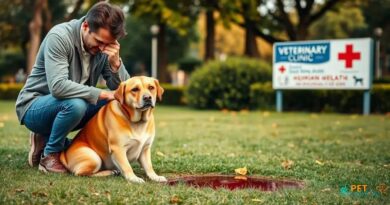What is Owner responsibility
What is Owner Responsibility in Pet Care?
Owner responsibility in pet care encompasses a wide range of duties that every dog owner must acknowledge and fulfill. This responsibility begins with understanding the basic needs of a dog, including proper nutrition, regular exercise, and mental stimulation. A responsible owner ensures that their pet receives a balanced diet tailored to its age, size, and health requirements. This commitment to nutrition not only promotes physical health but also enhances the dog’s overall well-being.
Health and Veterinary Care
Another crucial aspect of owner responsibility is ensuring that dogs receive regular veterinary care. This includes routine check-ups, vaccinations, and preventive treatments for parasites. Responsible owners are proactive in monitoring their dog’s health and recognizing signs of illness or distress. By maintaining a close relationship with a veterinarian, owners can ensure their pets live long, healthy lives, free from preventable diseases.
Training and Socialization
Training and socialization are vital components of owner responsibility. A well-trained dog is not only a joy to be around but also a safe companion. Owners should invest time in teaching basic commands and proper behavior, which helps prevent issues such as aggression or anxiety. Socializing dogs with other animals and people is equally important, as it helps them develop confidence and reduces the likelihood of behavioral problems in the future.
Providing a Safe Environment
Creating a safe environment for a dog is a fundamental part of owner responsibility. This involves securing the home and yard to prevent escapes and ensuring that harmful substances, such as toxic plants or chemicals, are out of reach. Responsible owners also consider the dog’s safety during walks, using leashes and harnesses to prevent accidents. A safe environment allows dogs to explore and enjoy their surroundings without unnecessary risks.
Exercise and Mental Stimulation
Regular exercise is essential for a dog’s physical and mental health. Owner responsibility includes providing daily walks, playtime, and opportunities for dogs to engage in activities that stimulate their minds. This could involve puzzle toys, training sessions, or interactive games. A well-exercised dog is less likely to exhibit destructive behaviors, making it crucial for owners to prioritize physical activity as part of their routine.
Understanding Breed-Specific Needs
Different dog breeds have unique characteristics and needs, which is an important aspect of owner responsibility. Owners should educate themselves about their dog’s breed to provide appropriate care. For instance, some breeds require more exercise than others, while certain breeds may be prone to specific health issues. Understanding these nuances allows owners to tailor their care approach, ensuring their dog’s happiness and health.
Commitment to Lifelong Care
Owner responsibility extends beyond the initial adoption or purchase of a dog; it is a lifelong commitment. Dogs rely on their owners for love, care, and companionship throughout their lives. This responsibility includes being prepared for the long-term financial implications of pet ownership, such as food, veterinary care, and other necessities. A responsible owner is dedicated to providing a stable and loving home for their dog, regardless of the challenges that may arise.
Community Responsibility
Responsible dog ownership also involves being a good neighbor and community member. This means adhering to local laws regarding pet ownership, such as leash laws and waste disposal regulations. Owners should also be considerate of others by ensuring their dogs are well-behaved in public spaces. By being responsible in the community, dog owners contribute to a positive environment for both pets and people.
Education and Advocacy
Finally, owner responsibility includes educating oneself and others about responsible pet ownership. This can involve sharing knowledge with new dog owners, advocating for animal welfare, and supporting local shelters and rescue organizations. By promoting responsible ownership practices, owners can help create a culture that values the well-being of all pets, ensuring that dogs receive the love and care they deserve.



